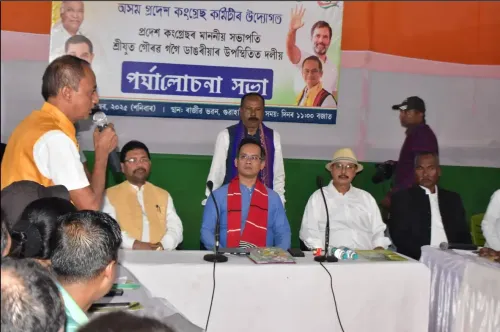ED Issues Provisional Attachment Order for Rs 387.99 Crore in Mahadev Online Book Investigation

Raipur, Dec 7 (NationPress) The Directorate of Enforcement (ED), Raipur Zonal Office, has confirmed the issuance of a Provisional Attachment Order in accordance with the Prevention of Money Laundering Act (PMLA), 2002, targeting additional assets amounting to Rs 387.99 crore in the Mahadev Online Book case.
According to the agency, the attached assets include both movable assets—such as investments from the Mauritius-based company, M/s Tano Investment Opportunities Fund linked to Hari Shankar Tibrewal via FPI & FDI—and immovable properties located in Chhattisgarh, Mumbai, and Madhya Pradesh, held in the names of the promoters of various betting applications/websites, their panel operators, and their associates.
The ED's investigation has indicated that the M/s Mahadev Online Book Betting APP functions as a significant syndicate that facilitates online platforms for illegal betting, enabling the creation of user accounts and laundering funds through a complex network of benami bank accounts.
Furthermore, the investigation has resulted in the seizure and freezing of cash amounting to Rs 19.36 crore and valuables estimated at Rs 16.68 crore. The agency has also frozen movable assets, including bank balances and securities, valued at Rs 1729.17 crore. Previously, two Provisional Attachment Orders were issued, seizing assets worth Rs 142.86 crore. In total, approximately Rs 2295.61 crore in Proceeds of Crime has been either seized, frozen, or attached in this case.
As part of the investigation, the ED has arrested a total of 11 individuals and submitted four Prosecution Complaints before the Special Court (PMLA) in Raipur.
The ED's inquiries have exposed a large network engaged in illegal betting across various games operated by Mahadev Online Book, including poker, card games, cricket, badminton, and tennis, with operations extending to accepting bets on Indian elections.
The platform is also implicated in various fraudulent activities including match-fixing, laundering funds through cryptocurrency, and manipulating games to secure profits for panel owners while causing significant losses to players.










